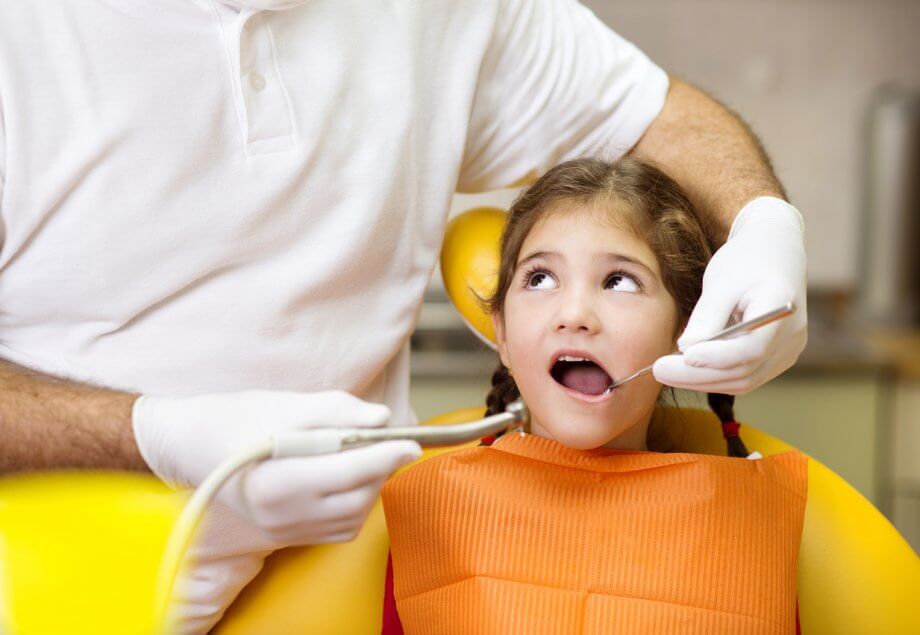Most of the parents we meet at our pediatric dental practice want to know how to prevent cavities; in fact, it's probably one of the most common questions we are asked. We understand that as parents, we want to spare children the pain of cavities and set them up for a lifetime of good oral hygiene. Luckily, there's a lot that parents can do to help prevent cavities. Here are some of our tips:
Use the Right Amount of Toothpaste--and the Right Kind
Kids toothpaste tastes good, so it's natural for kids to want to put a lot of it on their brushes. This is why it's important to help young children brush their teeth--for children under 3 years of age, you'll want to use a “smear” of toothpaste the size of a grain of rice and a pea-sized amount of children over 3. No matter what the age, use a fluoride toothpaste to strengthen enamel and fight against cavities. Fluoride toothpaste is fine for all ages when used with supervision.
Instill Good Nutrition Habits
It's not just a myth: sugar causes tooth decay. Bacteria thrive on sugar, so a diet full of soda, candy, fruit juice and sticky, sugary snacks is a factor in many of the cavities we see in children. A good diet for a child includes plenty of fruits and vegetables, healthy whole grains like oatmeal and brown rice, dairy, and varied sources of lean proteins. However, a child who grazes on carbohydrate foods is also at risk for dental decay, especially if the child is not brushing their teeth adequately.
Make Sure Your Child Brushes Well
Brushing well means brushing for 2 minutes twice a day and brushing all surfaces of the teeth--top and bottom teeth, front, back, and chewing surfaces too. Many children get into the habit of doing a quick swipe of the brush across their teeth and finishing their "brushing" in seconds. For this reason, we recommend that parents brush their children's teeth for them when they are toddlers, then graduate to sharing brushing duties, only letting their children brush their teeth on their own when they can be trusted to do it properly.
Oh, and don't forget flossing! It should be a part of your child's twice daily brushing routine. For young children who don't have the dexterity to use floss, we recommend using a floss pick and having a parent or other adult supervise.
Schedule Regular Dental Exams
There are many ways that we can prevent cavities before they start. When we look at your child's teeth, we'll be able to assess how well they are brushing; if we see a problem, we'll provide instructions to help get them on the right track. Dental cleanings will remove cavity-causing plaque and x-rays can find areas that are vulnerable to cavities.
Regular dental exams are also important because we can catch cavities right as they form, making treatment much easier on both you and your child.
Ask Your Dentist about Dental Sealants, Fluoride Varnishes, and Rinses
Dental sealants use a plastic material to seal the chewing surfaces of molars to protect against decay. We can also apply fluoride varnish to baby teeth and, in children over 6, recommend fluoride rinses to use at home if needed. Not all children need these treatments, but some children do and they are all effective ways to fight cavities.
Don't Share Germs
Did you know that sharing utensils and drinking glasses with your child can introduce cavity-causing bacteria to their mouths? It's true! We realize this may be a tough one for parents, but be mindful not to share forks, spoons, and anything else that has been in your mouth with your child.
Learn More About How to Prevent Cavities
Contact Pediatric Dental Associates at 908-735-6300 to set up an appointment for your child's first exam with us. We'll be happy to discuss more tips for preventing cavities and keeping your child's smile beautiful and healthy.
